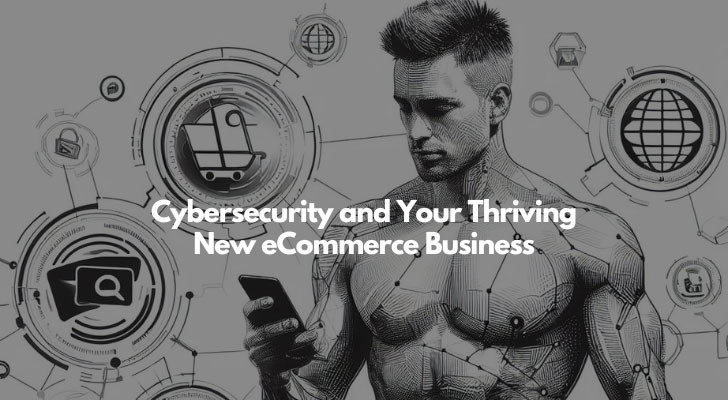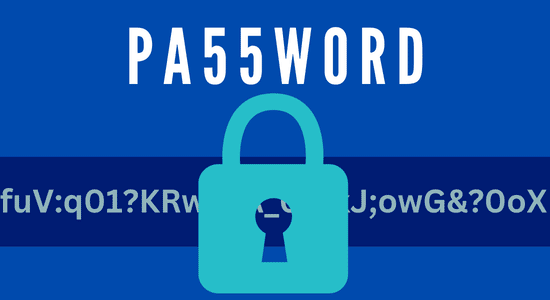You might think, "I'm just a small business, who would hack me?" Well, the truth is, hackers love targeting small businesses. They often have weaker security, making them easier targets. Plus, a security breach can really hurt your business's reputation. You wouldn't want to lose customers' trust, would you?
The Real Cost of Ignoring Cybersecurity
Think about the potential losses from a security breach. Not just money, but also customer trust and your brand's reputation. Can you afford that? Probably not. Let’s break it down and see why ignoring cybersecurity could be a risky game for your business.
Financial Fallout
It really is more than just money-lost. When hackers break into your system, the immediate financial loss is just the tip of the iceberg. Repairing the damage often requires a significant investment, not to mention the hidden costs that follow.
Trust Issues
A security breach can shatter customer trust. Once customers know their personal information is at risk, they might think twice about shopping with you again. This loss of trust can be hard to rebuild, right?
Reputation - A Brand's Fragile Image
Your brand's reputation, built over years, can be damaged overnight by a security breach. News of the breach can spread like wildfire, painting your business in a negative light. Protecting your brand's image is crucial, isn't it?
Aftermath Anxiety: The Struggle to Rebuild
Dealing with a security breach involves more than just technical fixes. You'll need to communicate with your customers, potentially face legal challenges, and work hard to regain lost ground. It's a daunting task, don't you think?
Legal Tangles: Compliance and Consequences
Ignoring cybersecurity can lead to legal problems, especially if you're required to protect customer data. Fines and legal actions are real possibilities, adding more strain to your business.
Future Sales at Stake: Winning Back Customer Confidence
A reputation for poor security can make attracting new customers difficult, and retaining existing ones even more challenging. Your future sales depend on customer confidence, so maintaining security is key, isn't it?
Peace of Mind: The Underrated Business Asset
Having strong cybersecurity measures in place offers peace of mind. Without it, there's always the looming threat of an attack, adding unnecessary stress to the already challenging task of running a business.
So you know that you need to put the proper protections in place right away, right? A major data breach could mean the end of your business before it even gets off the ground as you face potential lawsuits and a loss of customer trust. Everything from an email address to a social security number can be used for nefarious purposes or sold on the black market.
With all this in mind, security needs to be at the forefront from day one.
Common eCommerce Threats
The first step to protecting your eCommerce business is to educate yourself on common threats and know how to avoid them before they start. All of this information should be part of the risk assessment that you create on day one. This assessment should take into account all potential problems that could occur, from a hacker to a natural disaster, and the plan of action to protect your business if it comes true.
Bring in specific team members and assign them tasks so that the risk can be meditated, and you can go on with making money.
Phishing Scams: The Old Trick in the Book
Phishing scams are like the sneaky fisherman trying to catch you off guard. Here, scammers send emails or messages that look legit but are actually fake. They might pretend to be a well-known company or even someone from your own team.
The goal? To trick you into giving away sensitive information like passwords or credit card details. Did you know that around 22% of all data breaches in 2020 involved phishing? That's a lot, right?
These signs include:
- Various spelling errors in the email subject and body.
- Emails that look official but have a very general greeting, such as “dear sir or madam.”
- Any email requesting that a link or attachment be opened that you were not expecting. Customers should be informed that if they get an email asking to update their credentials, that they should go directly to the website to confirm.
Malware Attacks: The Hidden Trouble
Malware is like the bad software that sneaks into your system and causes chaos. It can steal data, spy on your activities, or even take control of your computer. In eCommerce, this can mean stolen customer information or messed-up transactions.
As of 2021, malware accounted for 17% of all cyber attacks. Doesn't that sound like something you'd want to avoid?
DDoS Attacks: When Your Website Just Can't Cope
DDoS, short for Distributed Denial of Service, is when a bunch of computers flood your website with traffic until it crashes. Think of it like a crowd of people blocking the entrance to a store, so no one can get in.
For an eCommerce site, this means lost sales and frustrated customers. Reports suggest that DDoS attacks have increased by 20% in just the last year. Quite the headache, huh?
Credit Card Fraud: The Classic E-commerce Woe
Credit card fraud in eCommerce is when someone uses stolen card details to make purchases on your site. It's like someone shopping with a fake wallet. Not only does it lead to chargebacks and lost goods, but it also damages your reputation.
Studies show that eCommerce fraud increased by 30% in 2020. That's a significant jump, don't you think?
SQL Injection: The Sneaky Data Thief
SQL injection is a bit technical, but imagine someone slipping a secret code into your website's database to steal or mess with your data. It's like someone secretly changing the locks to your store's doors and then taking whatever they want.
In 2019, nearly 65% of businesses faced SQL injection attempts. Sounds alarming, doesn't it?
Cross-Site Scripting (XSS): The Script Gone Rogue
XSS attacks happen when hackers inject malicious scripts into your web pages, which then affect your customers. It's like putting something harmful in the products you sell, unknowingly affecting the buyer. Around 40% of all web application attacks are XSS. You wouldn't want your customers to be at risk, would you?
E-skimming: The Invisible Pickpocket
E-skimming is when hackers inject code into your payment processing page to steal credit card data as the transaction happens. It's like having a tiny thief hiding in your cash register, sneaking out money. Reports suggest a 70% increase in e-skimming incidents in recent years. Scary stuff, right?
Protecting Your Website
Protecting your e-commerce site is like making sure your digital store is as secure as a brick-and-mortar shop with the best locks and security systems. Let's dive into some practical steps and tools you can use to beef up your site's security.
1. Choose a Secure E-commerce Platform
Picking the right platform for your e-commerce site is crucial. Platforms like Shopify, Magento, or WooCommerce come with built-in security features. They regularly update their software to patch any security vulnerabilities. It's like choosing a store location in a safe neighborhood, don’t you think?
2. Regularly Update and Patch
Always keep your e-commerce platform and any plugins up to date. Updates often include security patches that fix vulnerabilities. Think of it as regularly checking and fixing the locks on your doors. You can set most platforms and plugins to update automatically. Saves you the hassle, right?
3. Use Strong Passwords and Two-Factor Authentication
Encourage strong passwords for customer accounts. You can use plugins that enforce password strength. Also, implement two-factor authentication (2FA) – like having a double lock. Google Authenticator or Authy are good tools for this. This extra step might seem like a bit of work, but it adds a significant layer of security, doesn't it?
4. Secure Payment Processing
For payment processing, use established providers like PayPal, Stripe, or Square. They have robust security measures in place and are PCI DSS (Payment Card Industry Data Security Standard) compliant. It’s like having a trusted security guard handling your cash.
5. Regular Backups
Regularly backup your website. In case something goes wrong, you’ll have a recent copy to restore. Think of it as having a spare key to your store. Services like UpdraftPlus or BackupBuddy work great for WordPress-based e-commerce sites.
6. Monitor and Scan for Vulnerabilities
Use security plugins to regularly scan your site for vulnerabilities. Sucuri and Wordfence are popular choices for WordPress sites. They work like a security camera, constantly monitoring for any suspicious activity.
7. DDoS Protection
To protect against DDoS attacks, services like Cloudflare or Sucuri can be lifesavers. They act like a barrier, filtering out the bad traffic before it reaches your site.
8. Limit Access
Restrict administrative access to your site. Only give access to those who really need it. It’s like not giving every staff member the key to the safe, right?
9. Implement a Web Application Firewall (WAF)
A Web Application Firewall (WAF) is essential for filtering, monitoring, and blocking malicious traffic to your website. Think of it as a bouncer for your website, only letting in the good guys. Solutions like Cloudflare and Sucuri offer robust WAF services that are easy to integrate with most e-commerce platforms.
10. Advanced End-Point Security Solutions
Invest in advanced endpoint security solutions for your systems and servers. Tools like Bitdefender or Kaspersky provide comprehensive protection against malware, ransomware, and other advanced threats. They're like having a security guard that's trained to deal with sophisticated burglars.
11. E-commerce Specific Security Plugins
For platforms like WooCommerce or Magento, there are specific security plugins designed to protect against e-commerce-related threats. For example, iThemes Security for WordPress or MageFence for Magento add layers of security tailored to the platform's nuances. These plugins act like custom-made locks for your specific type of door.
12. Secure Your Admin Panels
Secure your admin panels with more than just a password. Change the default login URL to something unique. Also, limit login attempts and consider using IP whitelisting for accessing admin areas. It's like having a secret backdoor for trusted people only.
13. Implement Robust Data Encryption
Beyond SSL, consider implementing additional data encryption for sensitive customer data. Tools like OpenPGP or AES (Advanced Encryption Standard) provide extra layers of encryption for data at rest. It’s like putting your most valuable items in a safe within a safe.
14. Regular Penetration Testing
Conduct regular penetration testing on your site. Hire professionals to simulate cyber-attacks and identify vulnerabilities. It's like a fire drill, but for cyber-attacks. Companies like Rapid7 or CrowdStrike offer penetration testing services.
15. Utilize a Content Delivery Network (CDN)
A Content Delivery Network (CDN) not only improves website load times but also helps in mitigating DDoS attacks. CDNs distribute your site’s content across multiple servers, so if one goes down, others can take over. Cloudflare and Akamai are popular CDN options.
16. Monitor and Analyze Site Traffic
Use tools to monitor and analyze your site traffic for suspicious activities. Google Analytics can give you basic insights, but for more advanced monitoring, consider tools like GoDaddy’s Website Security platform or AWStats. It's like having a CCTV system that's smart enough to flag suspicious behavior.
17. SSL Certificates? Common Sense!
Almost a quarter of the 21st Century has passed. Launching a website without an SSL certificate is a definite no-go. It's like opening a store without a lock on the door.
An SSL certificate is a must for encrypting data between your website and its visitors, safeguarding sensitive information like login credentials and payment details. Not having SSL not only puts user data at risk but also damages your site’s credibility and search engine ranking. Don't even consider going online without it!
Did You Know You Already Have a LOT To Sell?
So What's Your Problem Biatch?
For years, I've had a passion for writing, sharing stories with the world. Parallel to that, I've spent a good part of my life in stock investing, learning the ropes and making wise decisions. Now, as I enjoy my semi-retired life, I find joy in blending these two worlds. By combining my financial experience with my writing skills, I aim to create content, hoping to inspire others.






